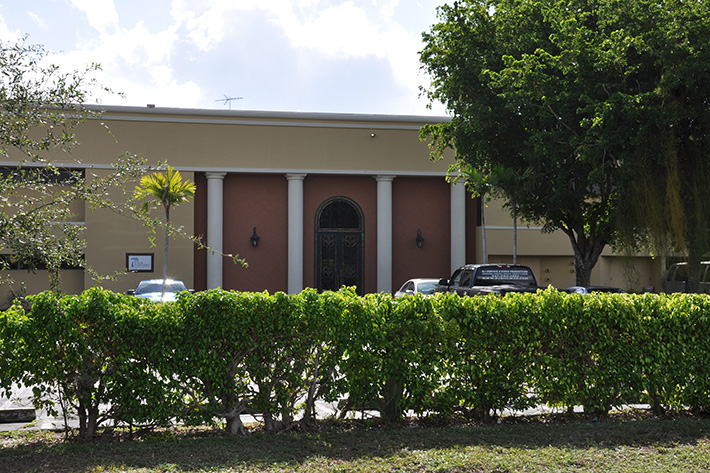How Can Mutual-help Groups Treat Opium Addiction?
According to the National Institute on Drug Abuse, “Most drug addiction treatment programs encourage patients to participate in group therapy during and after formal treatment.” One of the most popular and recommended types of this treatment is the mutual-help group, such as that found in 12-step programs or other groups with varying philosophies. An opium addict could absolutely benefit from treatment in one of these programs and many exist that are geared toward ending illicit drug abuse, specifically that of narcotics.
Mutual-help Groups as a Part of Overall Treatment
These programs are actually extremely beneficial as a part of an overall treatment regimen, one that usually includes medication, other types of therapy and counseling, and other services such as vocational and educational guidance, HIV prevention, drug testing, and drug education. This is because, in the face of serious opioid addiction, many treatment options are often needed to make a well-rounded recovery program. Still, according to the National Library of Medicine, “Support groups, such as Narcotics Anonymous and SMART Recovery, can be enormously helpful to persons addicted to opiates.”
Treatment Benefits of Mutual-help Groups
Groups like these, whether based in the 12-step approach or not, help their members in a number of ways, such as:
- Allowing them the chance to meet other recovering addicts who can become an important part of their recovery support network.
- Increasing their social support system and helping them gain new relationships built around their drug-free lifestyle.
- Providing another treatment option at no cost to their members.
- Having a flexible schedule that includes holding meetings at night and on weekends so members can attend as often as possible.
- Never discriminating against members and taking individuals at any point in their recovery.
- Providing a non-judgmental atmosphere for members to feel safe and comfortable to talk about their drug use and recovery.
- Recommending abstinence and providing actions the individual can take in order to strengthen this conviction.
- “Offering an added layer of community-level social support,” from other members to sponsors (NIDA).
Recovering addicts get to meet other people with similar experiences, giving them a sense of support and community.
Some of these programs, like Narcotics Anonymous, provide the 12 steps and help members gain control over their drug use through the power of prayer and spirituality while others, like SMART Recovery and LifeRing, utilize secular philosophies and scientific research. There is a program for nearly every type of individual that allows members to come together with like-minded people who also are recovering addicts. For many, this is a life-changing experience that eases the burden of recovery a great deal.
Can Opium Addiction Be Treated with Mutual-help Group Meetings?
Because opium causes the same effects as heroin and prescription opioids, and because individuals who abuse these drugs have been found to benefit immensely from the programs mentioned above, joining a mutual-help group could be very beneficial to your overall recovery. These programs have no extra cost and are often another line of defense for recovering addicts still in treatment. Even after your formal treatment program ends, you may decide to stay in the group in order to keep your recovery strong from day to day.
If you have more questions about opium addiction or about a support group you could join as a treatment for this disorder, call 800-584-3274 today.


 What Happens in Opium Treatment? -
Choosing a facility for opium addiction treatment can be challenging, but generally, most include a mixture of medical and behavioral therapy.
What Happens in Opium Treatment? -
Choosing a facility for opium addiction treatment can be challenging, but generally, most include a mixture of medical and behavioral therapy.  Is Methadone Treatment for Opiate Addiction Right for Me? -
If you are addicted to an opiate drug and want to stop using, then methadone treatment may be right for you. Methadone treatment will help you to get through the with minimal pain and will provide you with a safe detox.
Is Methadone Treatment for Opiate Addiction Right for Me? -
If you are addicted to an opiate drug and want to stop using, then methadone treatment may be right for you. Methadone treatment will help you to get through the with minimal pain and will provide you with a safe detox.  How to Find the Best Opiate Addiction Treatment -
Opiate rehab can help you overcome an addiction to opiates, but it's important to choose a good program. Evidence-based methods and an individual approach are essential.
How to Find the Best Opiate Addiction Treatment -
Opiate rehab can help you overcome an addiction to opiates, but it's important to choose a good program. Evidence-based methods and an individual approach are essential.  Do Opium Addiction Treatment Centers Still Exist? -
There are various treatment facilities and options available for those facing an opium addiction.
Do Opium Addiction Treatment Centers Still Exist? -
There are various treatment facilities and options available for those facing an opium addiction.  Benefits of Inpatient Opium Addiction Treatment -
Inpatient addiction treatment can be very helpful. It provides you with a safe, supportive and temptation-free environment to work on your recovery.
Benefits of Inpatient Opium Addiction Treatment -
Inpatient addiction treatment can be very helpful. It provides you with a safe, supportive and temptation-free environment to work on your recovery.